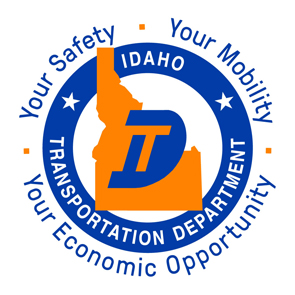
Aero’s lease, child ped. safety, ITD emergency management highlight February board meeting
![]()
Aeronautics’ lease, child pedestrian projects, LHTAC’s annual report, and the status of ITD’s Emergency Management Program were highlights from the February 21 Idaho Transportation Board Meeting
Aeronautics facility
At its February 21 meeting in Boise, the board approved entering into a lease agreement with the city of Boise for the Division of Aeronautics’ facilities.
ITD leases property from the city of Boise at the Boise Airport, but owns the administrative building and hangar. Due to growth at the airport occurring faster than expected, the city is requesting to terminate the current lease sooner than the expiration date of 2025 and enter into a new agreement for the same period. The city and the Boise Airport have agreed to build a new hangar facility at their expense and relocate ITD to the opposite side of the runway. The current lease rate of $1 per year would be retained until 2025 and then ITD would pay a negotiated rate from 2025 forward. The current Division of Aeronautics’ facility would also be removed by the city of Boise at no cost to ITD. 
2019 Children Pedestrian Safety projects
The Children Pedestrian Safety Program was established during the 2017 legislative session as part of the Strategic Initiatives Program. The board and Local Highway Technical Assistance Council (LHTAC) agreed to make $2 million available for these projects, with 60% of the funds coming from the state’s share and 40% from the local’s portion.
Fifteen projects were funded in the first year. Due to the success and popularity of the program, 65 projects totaling over $12.5 million have been requested for 2019. Members of the Transportation Alternatives Program Committee evaluated and ranked the applications. The LHTAC Council approved the list in January, followed by the board’s approval last week.
The top-ranked projects are in the cities of Chubbuck, Donnelly, Emmett, Twin Falls, and Kootenai.
Local Rural Highway Investment Program (LRHIP) Annual Report
LHTAC presented its annual report on the LRHIP. The goal of the program is to provide funding to rural local highway jurisdictions for construction and planning.
Per board policy, Surface Transportation Program – Rural funds may be exchanged for State Highway Funds in an amount not to exceed $2.8 million annually. The funds are available to cities with less than 5,000 population, county road and bridge departments, and highway districts that collect local taxes or have alternative funding mechanisms for highways and bridges. Funds cannot be used for wages, equipment, or consultant use on construction projects.
In FY18, 17 of the 47 construction applications were funded for $1.68 million; 2 of the 3 federal-aid match requests were funded for $200,000; 10 of the 21 transportation plans were funded for $370,000; and 9 of the 10 sign applications were funded for $245,000. Seven emergency projects were also funded for $440,194.
Emergency Management Program
The board also heard about the Emergency Management Program. The objective is to increase the department’s preparedness. Some initiatives that have been completed or are being developed include an active shooter training exercise, collaborating with other agencies in the event of a fuel crisis, identifying better communication tools, and finalizing the continuity of operations plan in case an event happened that required staff to relocate to a different facility.
ITD also works with partners, such as the Department of Homeland Security, LHTAC, the Federal Highway Administration, and Idaho State Police on activities like developing plans to address emergencies, traffic incident management, the move-over legislation, medical training, and a workshop on unmanned aerial systems.
Policy Updates
In November 2018, the board concurred with revisions to Administrative Policy 5070 All-Terrain Vehicle, Utility Type Vehicle, Specialty Off-Highway Vehicle, Motorbike and Snowmobile Travel and Crossing on the State Highways due to changes to Idaho Code. Before the policy was implemented, staff identified additional revisions that were presented to the board. It concurred with the additional changes.
All policies can be found on Share Point under Policy Finder: http://itdportal/sites/Admin/BSM3/PolicyFinder/default.aspx
Published 03-08-19